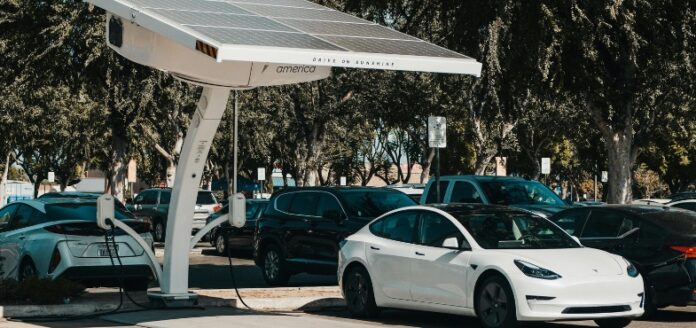Electric vehicles (EVs) are no longer a futuristic fantasy; they are becoming an increasingly viable option for daily transportation. However, the widespread adoption of EVs hinges on a critical factor: technological advancement. From battery technology to charging infrastructure, innovation is driving the EV revolution and paving the way for a sustainable future.
Battery Technology: The Heart of the EV
The heart of any EV lies in its battery. Technological advancements in battery technology have been instrumental in increasing the range and reducing the charging time of EVs, making them more practical for everyday use. Lithium-ion batteries, once a novelty, are now commonplace and continue to evolve with higher energy density and improved lifespan. Solid-state batteries, while still in development, promise even greater energy storage capacity and faster charging times, further enhancing the appeal of EVs.
Charging Infrastructure: Fueling the Future
A robust charging infrastructure is essential for widespread EV adoption. The development of fast-charging stations has significantly reduced charging times, making long-distance travel more feasible. Moreover, the integration of smart grid technologies enables efficient energy management and load balancing, ensuring a reliable and sustainable charging experience.
Autonomous Driving: The Future of EV Mobility
Autonomous driving technology is poised to revolutionize the EV landscape. Self-driving EVs can optimize routes, reduce traffic congestion, and enhance safety on the roads. Furthermore, autonomous EVs can be integrated into ride-sharing services, promoting carpooling and reducing the need for individual car ownership.
Connectivity and Telematics: Enhancing the EV Experience
Connected car technologies are transforming the EV experience. Over-the-air software updates enable remote diagnostics and performance enhancements, while telematics systems provide valuable insights into driving habits and energy consumption. These technologies not only improve the user experience but also contribute to the development of more efficient and sustainable transportation systems.
The Road Ahead
The future of EVs is bright, but continued technological innovation is crucial to ensure their widespread adoption. As battery technology advances, charging infrastructure expands, and autonomous driving becomes more prevalent, EVs will become an integral part of our transportation landscape. The convergence of technology and sustainability is driving the EV revolution, paving the way for a cleaner, greener, and more connected future.
In addition to the points mentioned above, technological advancements are also crucial for:
- Reducing the cost of EVs: Continued research and development in battery technology and manufacturing processes can help reduce the cost of EVs, making them more affordable for a wider range of consumers.
- Improving the environmental impact of EVs: Technological advancements can help to reduce the environmental impact of EVs throughout their lifecycle, from manufacturing to recycling.
- Creating new business models: The development of new technologies is creating new business models in the EV industry, such as battery-swapping services and vehicle-to-grid technologies.
The future of EVs is bright, and technological innovation will play a critical role in shaping that future. By continuing to invest in research and development, we can create a world where EVs are the norm, not the exception.

